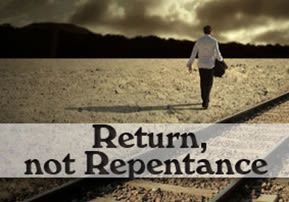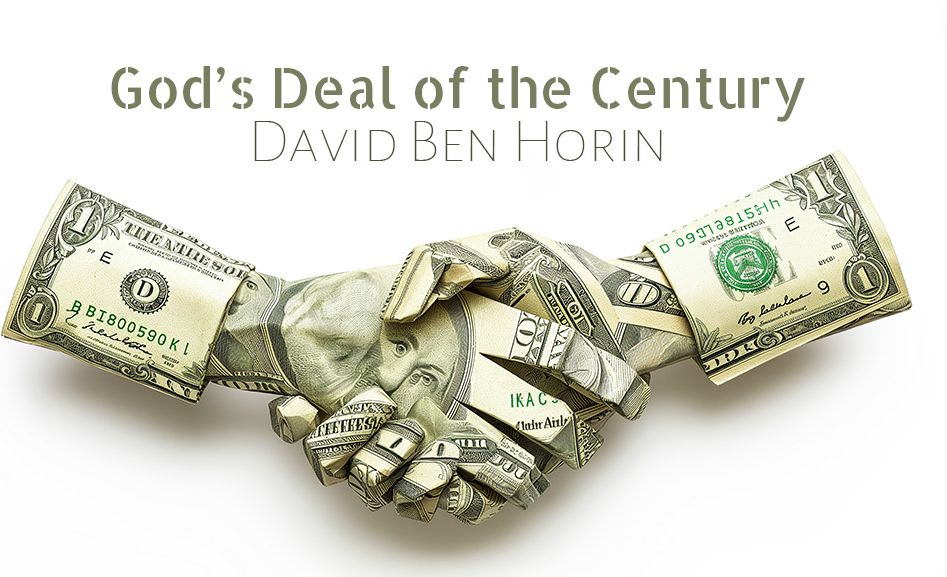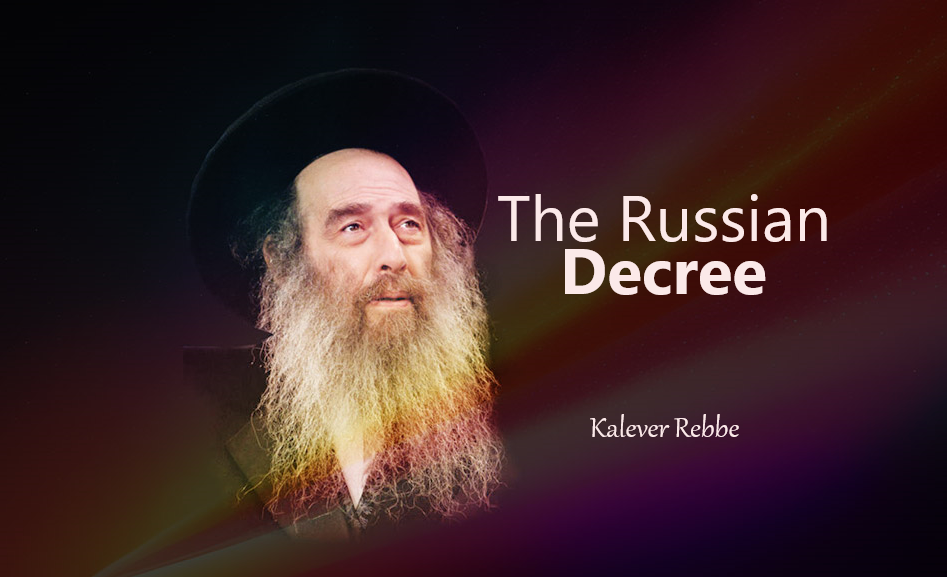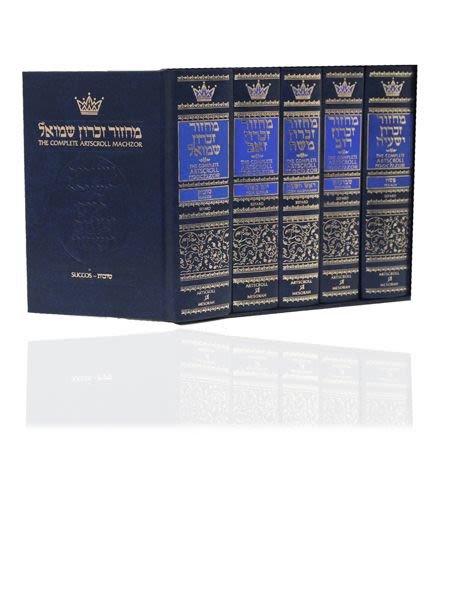
Return, not Repentance
Two different understandings of teshuva evoke divergent emotions. Repentance is generally associated with sadness; return, by contrast, is characterized by joy…

By the Lubavitcher Rebbe, of holy and blessed memory
Compiled and edited by Rabbi Eliyahu Touger and Uri Kaploun
Two Different Dynamics
The ten-day period beginning with Rosh HaShanah and climaxing on Yom Kippur is referred to as Aseres Yemei Teshuvah ("the Ten Days of Teshuvah"). At this time of year, our service of G-d is primarily directed toward teshuvah.
The conventional translation of teshuvah as "repentance" restricts its conception to one shared by Western society as a whole. The literal translation of teshuvah – and the conception expressed in our divine service – is "return". A comparison of the meaning of these two terms through the eyes of the Jewish tradition reflects a radical contrast that sheds light on many aspects of our relationship with G-d.
Repentance implies a reversal of one's conduct – a recognition of past shortcomings, and a firm resolution to change in the future. The two are interrelated; the awareness of our weaknesses impels us to reorient.
The concept of teshuvah as "return" emphasizes the fundamental spiritual potential of every person. Chassidic thought teaches that within each of us resides a Divine soul, a spark of G-d. This infinite G-dly potential represents the core of our souls, our genuine "I".
From this perspective, sin and evil are superficial elements that can never affect our fundamental nature. Teshuvah means rediscovering our true selves, establishing contact with this G-dly inner potential and making it the dominant influence in our lives. Seen in this light, our motivation to do teshuvah is not an awareness of our inadequacies, but rather a sensitivity to this infinite potential within our souls.
These two different understandings of teshuvah evoke divergent emotions. Repentance is generally associated with sadness, because feelings of regret and remorse play a leading role in prompting a person to change his conduct. Teshuvah, by contrast, is characterized by joy.
A baal teshuvah, one who actualizes his striving for teshuvah, naturally feels sorrow and remorse over his past mistakes. His dominant emotion, however, should be joy. For through teshuvah, he renews his connection to G-d and establishes a bond with his own spiritual potential. This, of necessity, gives rise to happiness. In fact, the absence of happiness indicates that a consummate connection has not been established and that more effort is necessary before one's teshuvah is complete.

Repentance appears to apply only to a limited range of people. Truly righteous individuals would appear to be beyond the need for repentance, while others might be considered too completely estranged from G-d to be capable of this religious experience.
Defining teshuvah as "return", however, broadens the scope of its application. For if teshuvah involves gaining access to one's true spiritual potential, it applies to all Jews without exception. The same G-dly spark exists within the soul of every Jew from the most alienated to the most righteous. This Divine potential is infinite; no force or power can prevent its emergence and expression. Every Jew, regardless of his level, can therefore do teshuvah. No matter how low he has descended, there is nothing that can prevent him from reversing his conduct and establishing a bond with G-d.
By the same token, no one, not even the most righteous, is above teshuvah. Each of us, even the most spiritually developed, is limited by the very fact of his humanity. Our thoughts and our feelings, as well as our bodies and physical desires, reflect the limitations inherent in creation. Teshuvah allows us to rise above these limitations and establish contact with the unbounded potential of our G-dly essence. This, in turn, lifts the totality of our experience to a higher rung. Whatever our previous level of divine service, teshuvah can introduce us to a new and higher plane of spiritual awareness and capacity.
For this reason, our Sages teach that "perfect tzaddikim (righteous men) cannot stand in the place of a baal teshuvah." For teshuvah reveals the infinite G-dly spark within our souls and connects us to G-d at a level above even the most sublime levels of divine service.
Defining teshuvah as "return" rather than "repentance" also sheds light on the meaning of a problematic Talmudic passage. Our Sages state that through teshuvah, all our past transgressions, even those committed intentionally, are transformed into merits.
We can appreciate that repentance erases all traces of the past, and that G-d forgives our sins and allows us to start anew. But how can repentance transform the sin itself, an act performed in defiance of G-d's will, into a positive deed? Sin separates a Jew from G-d. How can it become part of a process of connection?
These questions are valid if we view teshuvah as repentance, an opportunity for a new beginning. When we conceive of teshuvah as a return to our true selves, however, these difficulties are resolved.
A Jew is never separate from G-d, even when he sins, because the fundamental spiritual bond which links us to G-d is so strong that even when a conscious relationship appears to have been severed through sin, the inner connection is unaffected and continues to propel us toward teshuvah.
Because our connection with G-d is always intact, sin, as an act of separation, may itself provide the impetus for our fundamental G-dly nature to surface. The feeling of being outwardly cut off from G-d may arouse a thirst for a more intense bond with Him.
Though every sinful act is a direct rebellion against G-d's desires, when considered as a phase in a progression leading to teshuvah, sin can be seen as a motivating force, directing a person to establish a deeper and more powerful relationship with G-d. In fact, the connection with G-d established through teshuvah is more profound and more intense than that experienced beforehand.
Every element of our world exists for the fundamental purpose of revealing G-dliness. Certain elements of creation reveal G-dliness overtly; other elements reveal G-d's Omnipresence indirectly. For example, the observance of mitzvos straightforwardly demonstrates that the material can be joined in a bond of oneness with G-d. The cycle of sin and teshuvah unfolds the ultimate truth of G-dliness, but in a different manner.
When a person first sins and then feels motivated to reject this behavior, these two steps, taken together, serve as a powerful affirmation of G-dliness, demonstrating that nothing, not even sin, can stand in the way of man's connection to G-d. The sinner's act of return shows the infinite power of his G-dly soul, and reveals how it will overcome all obstacles in its natural drive for self-expression.
The unique bond with G-d established through teshuvah has repercussions far beyond an individual's personal sphere. As the Rambam states, "Israel will be redeemed only through teshuvah. The Torah has promised that ultimately Israel will return towards the end of her exile, and immediately she will be redeemed." May this take place in the immediate future.
(Reprinted with kind permission of www.sichosinenglish.org)












Tell us what you think!
Thank you for your comment!
It will be published after approval by the Editor.